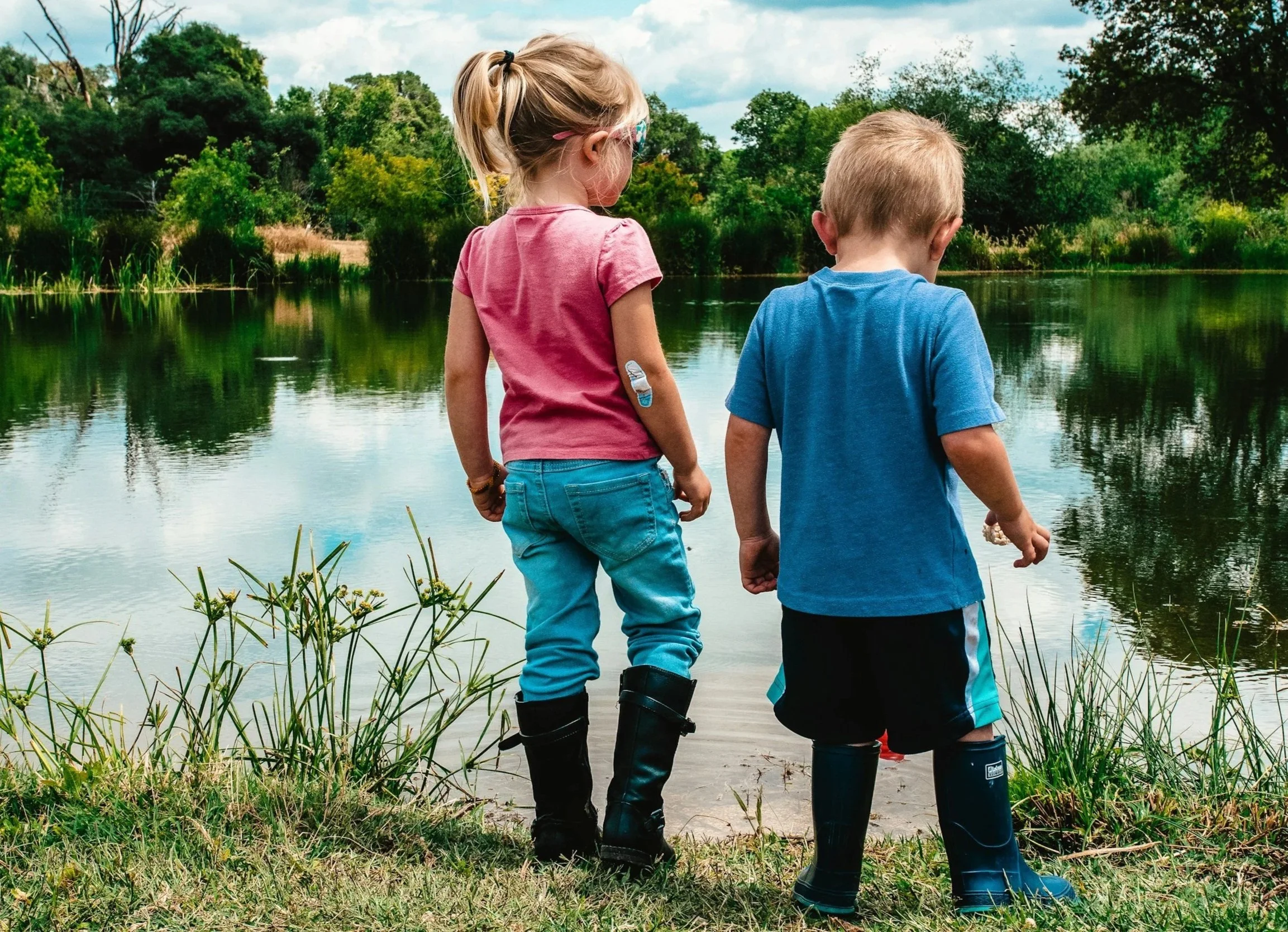Nature as medicine: Supporting children’s emotional wellbeing through outdoor play
Life is very busy for my family and for most of the families I see in clinic. School, activities, screens and daily responsibilities often leave little room for down time. With so much going on, it can be easy to forget that children need regular opportunities to slow down and reset.
A child’s emotional wellbeing is influenced by many things - not just food and learning, but also how calm, connected and supported they feel. One of the simplest and most effective ways to support children’s emotions is through time outdoors. Fresh air, natural light and unstructured play have benefits that go well beyond exercise. Being in nature helps children feel calmer, more resilient and better able to manage the ups and downs of everyday life.
Why outdoor play matters
Children today spend much more time indoors than previous generations. Screens, structured activities and busy schedules mean there are fewer opportunities for natural play, yet research shows that time in nature makes a real difference to children’s wellbeing.
Outdoors, children are exposed to a wide range of sensory experiences - the sound of birds, the feel of grass, watching tree branches swaying and clouds moving across the sky. These experiences help calm the nervous system, which in turn supports better mood and emotional balance.
Nature also gives children freedom. Unlike structured indoor environments, being outdoors allows them to explore, imagine and create. This type of play builds confidence and problem-solving skills, which are closely tied to emotional wellbeing.
The benefits of time in nature
Time spent outdoors is associated with a range of physical, cognitive and emotional benefits, including:
Lower stress hormones: Cortisol levels drop in natural environments, making it easier for children to return to a calm state.
Better sleep: Exposure to natural light helps regulate sleep cycles, which improves mood and energy.
Improved focus: Outdoor play reduces mental fatigue. Many parents notice their children concentrate better after being outside.
Increased resilience: Climbing a tree, building a cubby or navigating a new space teaches children to manage challenges, which helps them cope better in other areas of life.
Joy and connection: Outdoor play naturally brings joy. Sharing these experiences as a family also strengthens connections, which are protective for children’s wellbeing.
Self-regulation: Physical play or even quiet time outdoors gives children a safe outlet for emotions, helping them process feelings in healthy ways.
How could you incorporate more time in nature into your child’s week?
Helping children benefit from nature doesn’t have to mean long bush walks or weekend camping trips. Simple, everyday moments make a real difference.
1. Short and often
Even ten minutes outside can help. Playing barefoot in the grass, cloud watching or a quick game of catch can reset a child’s mood.
2. Unstructured play
Organised sports and activities have value, but unstructured time - where children choose what to do - often brings the biggest emotional benefits.
3. Family routines outdoors
A short walk after dinner, gardening together or weekend bike rides can become regular rituals that children look forward to.
4. Simple swaps
Taking afternoon tea outside instead of in front of a screen, or reading a book in the garden instead of indoors, adds more outdoor time without needing extra hours in the day.
Practical challenges like time, weather, and safety can make regular outdoor play tricky. While these are real issues, small adjustments can help.
If you’re short on time, make use of transition moments, e.g. a walk to school, a few minutes in the backyard before homework or a play at the park on the way home.
If the weather isn’t great, embrace it! My kids always loved putting on their raincoats and gumboots and splashing in puddles.
For safety, choose familiar local spaces or create a simple nature corner at home with plants, herbs or a sandpit.
It doesn’t need to be perfect. What matters most is consistency.
Remember: Children’s emotional wellbeing is shaped by the environments they spend time in. Nature is one of the most effective and accessible ways to help them feel calm, connected, and more resilient, and even just a few minutes outdoors each day can have a real impact.

